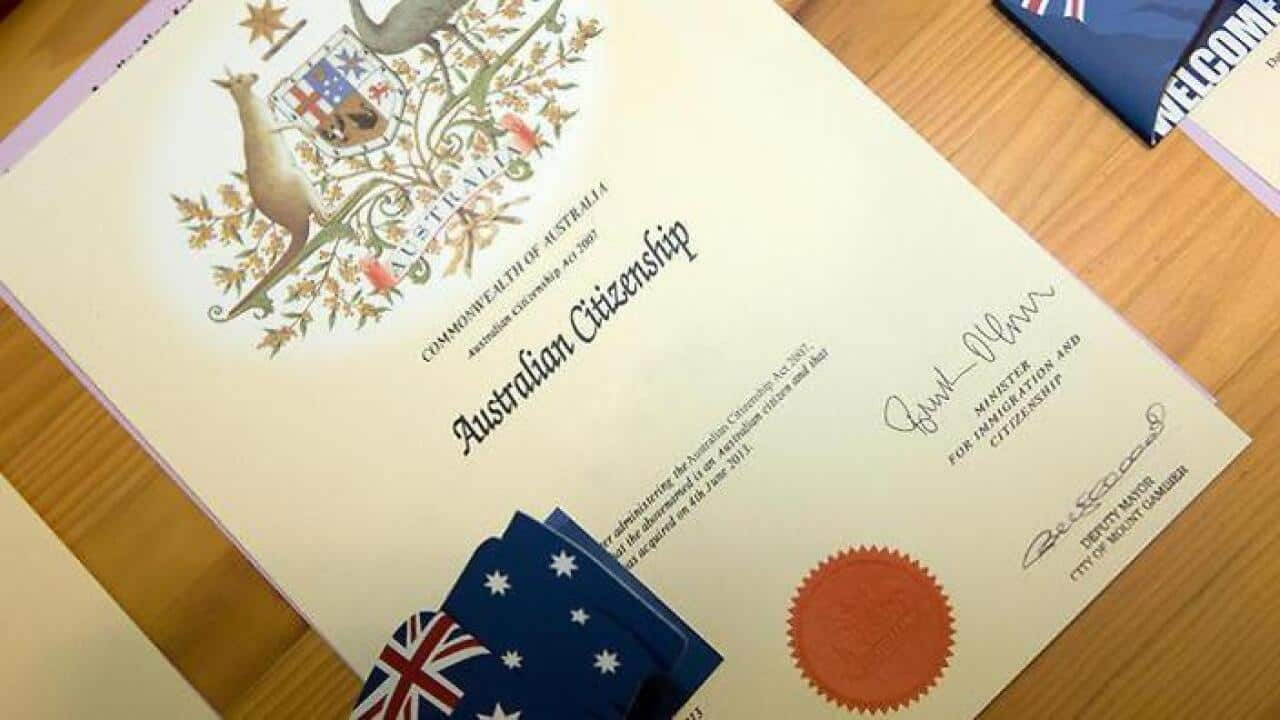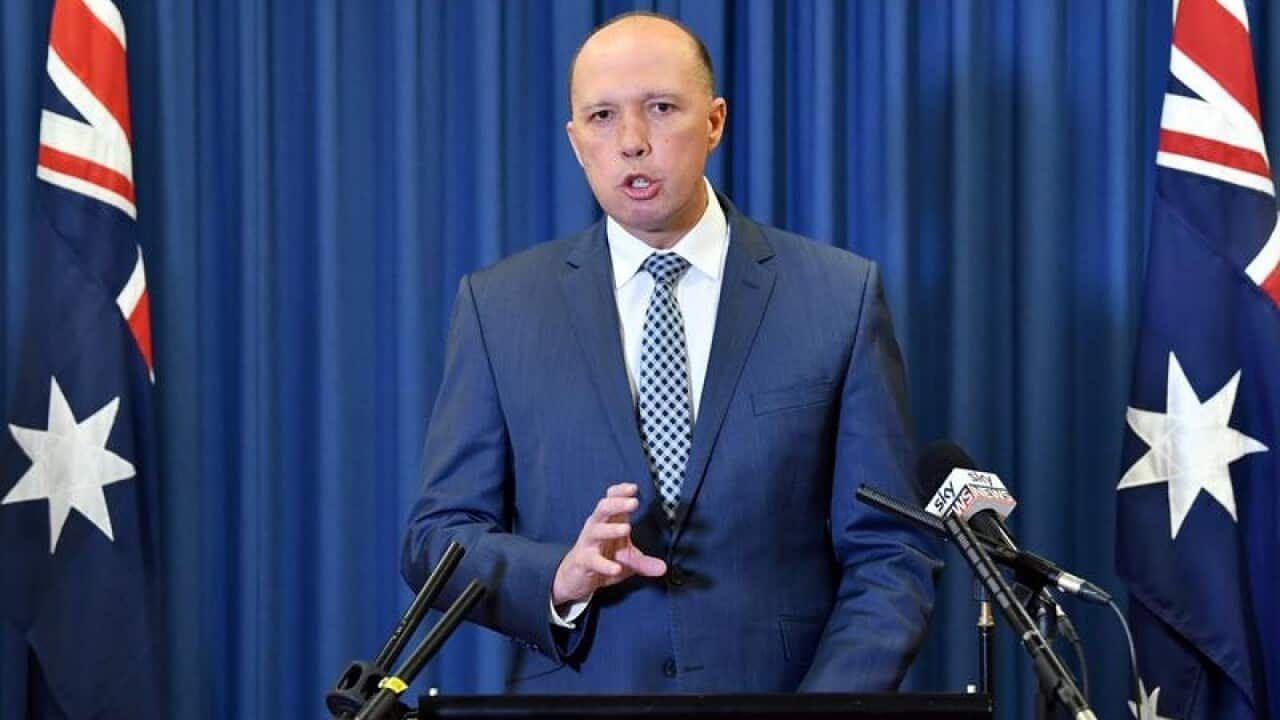Indian national Sagar Shah was one of the 4,000 migrants whose citizenship application was refused in 2016-17.
Although he met all the requirements for Australian citizenship when he applied for it in December 2012, his application was refused because of something he did after lodging his application.
Mr Shah travelled to India in March 2014 and did not return to Australia for over three years. The Department of Immigration and Border Protection refused his citizenship application on the basis that he did not intend to stay in Australia or maintain a close or continuing association with Australia.
According to Mitch Simmons from Tern Lawyers, not many applications are refused for this reason.
“Generally in the citizenship applications that issue is usually taken for granted that there’s no evidence to suggest that they do intend to reside anywhere else but in Australia,” Mr Simmons tells SBS Punjabi.
“But in the cases where this was an issue, it’s generally because of some family or business interests that lead them to be spending some significant period of time outside of Australia.” Mr Shah told the Administrative Appeals Tribunal that he had to stay in India to take care of his father who had become paralysed due to a stroke and to look after the family business. The AAT affirmed the Department’s decision in his case.
Mr Shah told the Administrative Appeals Tribunal that he had to stay in India to take care of his father who had become paralysed due to a stroke and to look after the family business. The AAT affirmed the Department’s decision in his case.

Immigration lawyer Mitch Simmons. Source: Supplied
While the Department of Home Affairs says this year’s statistics of citizenship refusals are not “publicly available”, 4,151 applications for citizenship by conferral were refused in 2016-17.
Of those who were refused Australian citizenship, 1,866 couldn’t pass the citizenship test. The remaining applications were refused because of failure to prove identity, failing police checks and involvement in extremist organisations.
Last month, an Indian national lost out on Australian citizenship after it was discovered that he lied in his citizenship application in 2016 when did not disclose his court conviction over the theft of a pair of shoes six years ago. He was also convicted for possessing a credit card that the police suspected was stolen.
The AAT refused his appeal against the Department of Home Affairs decision not to approve him for citizenship on character grounds, and concluded that the non-disclosure of his convictions involved a deliberate “pattern of dishonesty”.
Mr Simmons says says failing to meet these requirements is one of the most common reasons for citizenship refusals.
“Under the citizenship application, if there are charges and no conviction, that can be taken into account. So we suggest if there’s anything that can lead to the Department determining someone is not of good character, they should seek legal advice. Otherwise, there’s potential for visa cancellation, not just refusal for citizenship application,” says Mr Simmons.
He says the character consideration for citizenship is broader than when applying for a visa.
“The government’s current approach to citizenship to the character is they see it as the last chance to decide whether they want this person in Australia because once someone is an Australian citizen then it’s very hard to undo that.”
Traffic offences leading to citizenship refusal
Last year, Ritnesh Kumar lost his appeal against the Immigration Department's decision to refuse his citizenship application over his repeated traffic offences.
His driving history revealed multiple traffic offences between December 2007 and March 2015 which included disobeying traffic lights, speeding, driving an unregistered motor vehicle and driving while suspended.
Mr Kumar, a Fijian citizen, was fined $500 and disqualified from driving for three months by a Dubbo Court in May 2010 for driving an unregistered vehicle. But he failed to disclose the conviction in his citizenship application filed in December 2015.
A delegate of the Immigration Minister refused his citizenship application on the grounds that he failed to meet the character requirements. The decision has been upheld by the Administrative Appeals Tribunal.
Michael Arch from Concordia Law says driving offences are taken into account while ascertaining whether a person is of good character.
"It’s not very clear when traffic offences may become a problem for a citizenship applicant and different factors may play a part," Mr Arch told SBS Punjabi.
"The nature of the traffic offences, the number of offences, whether anyone was injured or placed at risk of harm, whether the applicant has honestly disclosed the offences, the period of time that has passed since the offences were committed and whether the applicant has accepted responsibility, expressed remorse, and truthfully disclosed the criminal history on their citizenship application, how the offences have been treated by the courts, the amount of fines, whether the offences have resulted in imprisonment, whether the fines have been paid."
Proposed changes in the citizenship law
In 2017, the government announced an overhaul of citizenship laws by increasing the general residence requirement from one to four years and introducing a standalone English proficiency test.
The government was forced to scale back some of the proposed changes after the Bill was defeated in the Senate due to a joint opposition from the Labor, Greens and some on the crossbench.
Though the Government planned to put the reworked citizenship legislation before Parliament before July this year, it hasn't been able to do so. The new citizenship minister, David Coleman said the Government is still consulting on the key elements of the legislation.
The Greens - after leading the charge to have Government's citizenship legislation removed from Senate notice paper last year - are once again preparing to launch a second strike at it.
The party's immigration spokesperson Nick McKim told SBS Punjabi that the Government doesn't have numbers to pass the law in Senate.
“The Greens aren’t prepared to just sit by and just allow this legislation to remain on notice paper if the Government isn’t going to bring it on. We will certainly consider once again to have this legislation struck off the notice paper if we think the government is using it for political posturing.”







